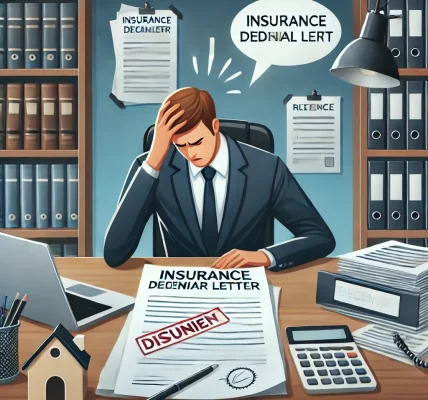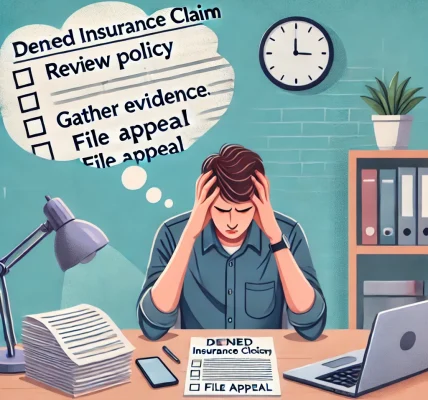Filing an insurance claim can be a stressful and complex process. Many policyholders make critical mistakes that lead to claim denials, delays, or reduced payouts. Understanding these common mistakes and how to avoid them can help ensure a smoother claims experience. In this guide, we will explore the top mistakes to avoid when filing an insurance claim and provide actionable solutions to maximize your chances of a successful settlement.
1. Delaying the Claim Filing Process
One of the biggest mistakes people make is waiting too long to file a claim. Most insurance companies have strict deadlines, and delays can lead to claim rejection.
How to Avoid:
- Report the incident to your insurer as soon as it happens.
- Check your policy for claim submission deadlines.
- Use your insurer’s online portal or mobile app for quick filing.
2. Not Understanding Your Policy Coverage
Many policyholders assume certain damages or losses are covered when they are not. This misunderstanding can result in denied claims.
How to Avoid:
- Read and understand your insurance policy before filing a claim.
- Speak with your insurance agent to clarify any doubts.
- Know the limitations, exclusions, and deductible amounts.
3. Providing Incomplete or Inaccurate Information
Submitting incorrect or incomplete details can lead to delays or outright rejection of your claim.
How to Avoid:
- Double-check all details, including dates, amounts, and descriptions.
- Ensure your personal information matches official records.
- Be truthful and transparent when describing the incident.
4. Failing to Document the Damage Properly
Insufficient evidence can make it difficult to prove your claim, leading to a lower payout or denial.
How to Avoid:
- Take clear photos and videos of the damage immediately after the incident.
- Keep records of all receipts and repair estimates.
- Obtain a police report if required (for theft, accidents, etc.).
5. Making Repairs Before the Insurance Adjuster Arrives
Fixing damages before an adjuster assesses them can result in claim disputes or a lower payout.
How to Avoid:
- Wait for the insurer’s approval before making major repairs.
- If emergency repairs are necessary, document everything with receipts and photos.
6. Not Cooperating with the Insurance Adjuster
The insurance adjuster plays a key role in determining your claim’s outcome. Lack of cooperation can slow down the process.
How to Avoid:
- Be available for the adjuster’s visit and provide all requested documents.
- Answer questions honestly and provide additional evidence if needed.
- Maintain a professional and respectful attitude.
7. Exaggerating or Misrepresenting Claims
Exaggerating damages or fabricating details can lead to claim denial or even legal consequences.
How to Avoid:
- Always provide accurate and truthful information.
- Submit genuine proof and supporting documents.
- Avoid inflating the value of lost or damaged items.
8. Not Keeping Track of Communication with the Insurer
Lost or misinterpreted communication can lead to claim delays.
How to Avoid:
- Keep a record of all emails, calls, and written correspondence with your insurer.
- Ask for written confirmation of important discussions and agreements.
- Follow up regularly on the status of your claim.
9. Accepting a Low Settlement Without Reviewing It
Some insurers may offer a lower settlement initially, hoping the claimant will accept it without question.
How to Avoid:
- Carefully review the settlement offer before accepting it.
- Compare the offer with repair estimates or medical bills.
- Negotiate with the insurer if the payout is insufficient.
10. Not Appealing a Denied Claim
Many policyholders assume a denied claim is final, but most insurers offer an appeal process.
How to Avoid:
- Request a written explanation for the denial.
- Provide additional supporting documents if required.
- Follow the appeal procedure outlined in your policy.
Final Thoughts
Filing an insurance claim doesn’t have to be complicated if you avoid common mistakes. By understanding your policy, providing accurate information, and keeping detailed records, you can improve your chances of a hassle-free settlement. Always be proactive, organized, and honest when dealing with your insurer to ensure a smooth claims process.




